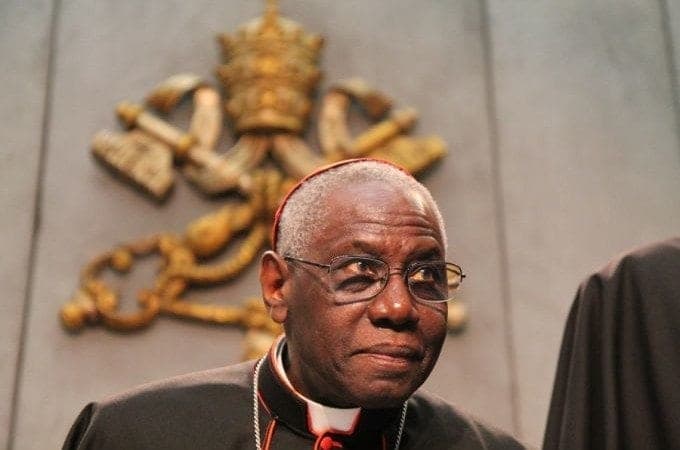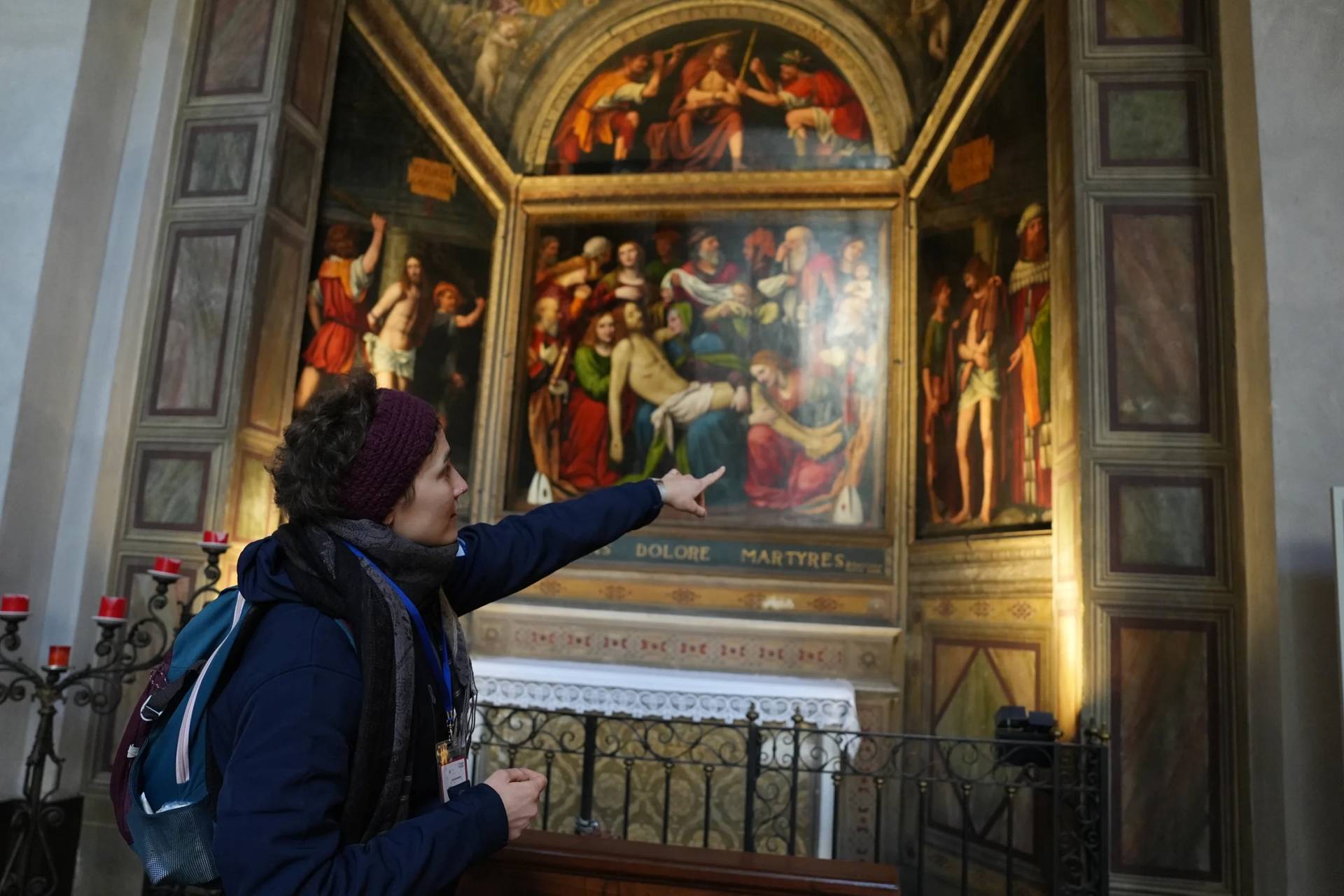Speaking in Washington, D.C. on Tuesday, African Cardinal Robert Sarah enjoined Catholics to resist “ideological colonization” and the removal of God from society, in order to help the Church resist threats to the family and religious freedom around the world.
Sarah is a native of Guinea, in west Africa, and is prefect of the Vatican’s Congregation for Divine Worship.
“Nowhere is [religious persecution] clearer than in the threat that societies are visiting on the family through a demonic ‘gender ideology,’ a deadly impulse that is being experienced in a world increasingly cut off from God through ideological colonialism,” the cardinal said in his keynote address at the May 17 National Catholic Prayer Breakfast.
Speaker of the House Paul Ryan (R- Wis.) and Sister Constance Veit of the Little Sisters of the Poor also addressed the crowd before Sarah’s talk.
Sarah emphasized that individualism and a desire to create what he called a “utopian paradise” without God has had a profound impact on societies.
“Rapid social and economic development in the past half century has not been accompanied by an equally fervent spiritual progress, as we witness what Pope Francis calls ‘globalized indifference,’” he said.
This indifference to persons can be seen in “our closing our eyes and hearts to the poor and vulnerable, and, in a very despicable way, in how we discard the unborn and the elderly,” he continued.
The greatest challenges, however, he said, are the challenges facing the family. Quoting Pope Francis, Sarah reminded the crowd that proposing less than what the Church teaches on marriage proposes less than what Christ offers the human person.
“This is why the Holy Father openly and vigorously defends Church teaching on contraception, abortion, homosexuality, reproductive technologies, the education of children and much more.”
These and other injuries to the family, Sarah said, can turn the family from a place of flourishing and love into “a place where human beings can be humanly and spiritually wounded.”
Protecting the family is also linked to the preservation of religious freedom, Sarah said as he urged the Americans to protect their history of religious freedom.
While many Christians across the world are suffering from violence due to persecution from governments or groups like Islamic State, “ violence against Christians is not just physical, it is also political, ideological and cultural,” the cardinal said.
“This form of religious persecution is equally damaging, yet more hidden. It does not destroy physically but spiritually.” The ‘violence’ of cultural and ideological pressure seeks to separate the Christian from his or her conscience and blend them into society.
The Church’s teachings on marriage, sexuality and the family are under extreme pressure, Sarah said.
“In the name of ‘tolerance,’ the Church’s teachings on marriage, sexuality and the human person are dismantled,” he said, citing the legalization of same-sex marriage, the contraception mandate, and a mandate that bathroom access be based on gender identity.
In the face of such threats to the free exercise of religion and conscience, Sarah called on Catholics to be prophetic, faithful, and prayerful.
A prophetic approach requires careful discernment of how “in your lives, your homes, your workplaces – how, in your nation, God is being eroded, eclipsed, liquidated,” he said. Faithfulness requires Catholics to be courageous in speaking the truth. And prayer, he said, is essential to discerning God’s will and to avoid discouragement.
“That is why I came to this prayer breakfast, to encourage you: be prophetic, be faithful, and above all, pray,” Sarah told the crowd.
“These three suggestions make present that the battle for the soul of America, and the soul of the world, is primarily spiritual. They show that the battle is fought firstly with our own conversion to God’s will every day.”
He hoped that the response to the spiritual problems facing the United States would result in a “spiritual awakening,” and would help to stop problems spreading throughout the rest of the world, particularly those facing human life, the family, and religious freedom.
“In the end, it is God or nothing,” Sarah concluded.















